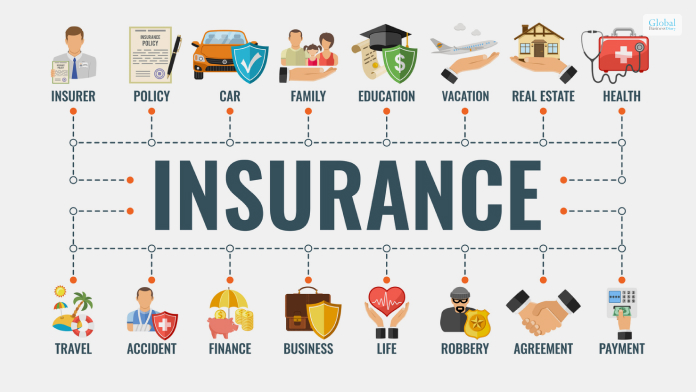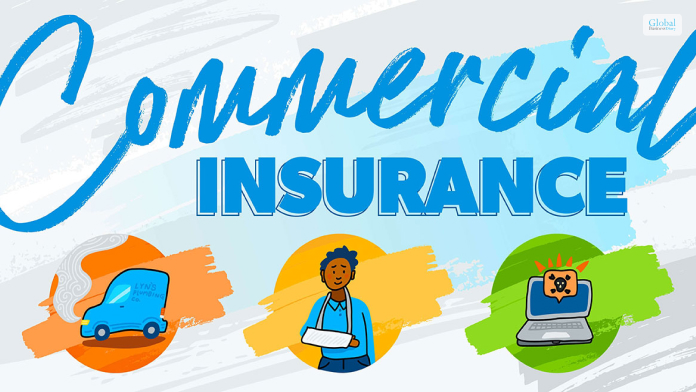Guaranteed Issue Life Insurance: Is it Worth It?

Purchasing a life insurance policy is a troublesome process that requires going through different medical tests and answering health questionnaires. Have you ever thought of getting a policy without undergoing these processes?
Well, guaranteed issue life insurance comes with some excellent benefits to getting rid of this process. For example, this policy doesn’t require any medical exam or even answering questions about your health condition to purchase.
But this type of life insurance offers higher premium rates with lower and inflexible coverage. Now you may be confused about the best-guaranteed issue of life insurance: is it worth it?
To clear up your confusion, keep reading the entire context. Here you will find a comprehensive discussion regarding guaranteed issue life insurance.
What Exactly Is Guaranteed Issue Life Insurance?
Guaranteed issue life insurance is one kind of permanent life insurance known as non-medical life insurance. This is because this type of insurance doesn’t involve any medical examination.
Even guaranteed issue life insurance doesn’t require any medical records to show and answer health questionnaires in front of the insurer. You have to submit an application to the insurer to purchase a guaranteed issue insurance policy and wait for the approval.
Most insurance companies approve on the same day of application, while others require 48 hours. Unlike traditional life insurance, premium guaranteed issue life insurance are a little bit higher.
However, the coverage of this insurance is guaranteed and enough to cover funeral all expenses and small debts.
How Does Guaranteed Issue Life Insurance Work?

Guaranteed issue life insurance works differently than any other traditional life insurance. First of all, it requires the insured to fill out only a basic application without any medical examination or submitting records.
The application filling out process can be made both online and offline. Those who are applying for guaranteed issue health insurance actually need approval from the insurance companies.
Once you obtain the approval, you can purchase the policy right away. In general, guaranteed issue life insurance comes with a two-year waiting period to pay out. For that, your beneficiary won’t get full coverage from your policy if you die during the waiting period.
Since Guaranteed issue life insurance is a kind of permanent life insurance, you will have to pay premiums as long as you’re alive. And the cash value feature of this insurance will allow you to borrow money until your death.
Advantages Of Purchasing Guaranteed Issue Life Insurance
Before deciding whether guaranteed-issue life insurance is worth it, it is crucial to know what benefits this insurance offers. For your convenience, here we have talked about some significant advantages of purchasing guaranteed issue life insurance.
1. Pay Off Funeral Expenses
According to the National Funeral Directors Association, today, completing a funeral needs more than $9,000 on average. This cost mainly spends on purchasing a plot, final preparations, cremation, caskets, and other necessities.
Bearing this cost can be difficult for a family, especially if the only earning person dies. In that case, guaranteed life insurance will help pay off all of these expenses.
2. Bear Your Medical Bills
Most people are usually suffering from different diseases in old age. For that, they have to spend a huge amount of money on medical bills before death. This bill includes medications, hospital stays, medical procedures, and specialist care.
Paying off such costs is quite challenging for anyone, especially in old age. But if you have guaranteed issue life insurance, you won’t have to worry about this. This insurance will cover all your medical expenditures.
3. Pay Off Your Left Debts
Some people left different debts before death, including personal loans, car loans, house loans, or other loans. Paying off these debts is quite troublesome for a family after anyone’s death.
In that case, if the dead individual has any guaranteed issue life insurance, his/her family won’t have to be tense about paying off the debts. The insurance coverage will help pay off the left debts along with the funeral expenses.
4. Support Your Family Financially
If your family relies only on your income to pay off daily necessities, your whole family may have to undergo a financial crisis after your death. The situation will be worse if you leave your children’s education fees unpaid.
Bearing these costs will be challenging for your family without your income. In that case, if you leave guaranteed issue life insurance, your family will get good financial support in your absence.
5. No Medical Exams & Health Questionnaires
While most traditional life insurance requires completing a medical test, guaranteed issue life insurance is completely different. To purchase this life insurance, you don’t have to undergo any medical examination.
Even, there is no need to answer any health questionnaires before the insurance company. You just need to fill out an account form and wait for the approval of the insurance company.
Some Drawbacks Of Having Guaranteed Issue Life Insurance
Besides some outstanding benefits, there are also some disadvantages of having guaranteed issue life insurance.
Here we have briefly discussed these drawbacks so that you get an overall idea of this life insurance.
- Higher Premiums: Compared to traditional life insurance policies, guaranteed issue life insurance charges higher premium rates. The lack of knowledge about the insured health condition is the main reason for this higher rate.
- Small Coverage Amount: The death benefit of guaranteed life insurance is typically low; sometimes, it is not more than $25,000. But the amount is enough to pay off the funeral and other expenses.
- Graded Death Benefits: Guaranteed issue life insurance policies come with a waiting period of at least 2 years. That means the insured’s carrier can’t issue the full death benefits if he/she dies during the waiting period.
Guaranteed Issue Life Insurance: Is It Worth It?

Considering the benefits, having guaranteed issue life insurance is really worth it. In general, some people with poor health conditions cannot qualify for standard insurance policies. In such situations, they are willing to pay higher premiums to support their family financially after the death.
If you are one of them and exhausted from all traditional life insurance options, guaranteed issue life insurance will be a good choice for you. With this life insurance, you don’t have to obtain any medical examination and answers to health questionnaires.
However, remember that guaranteed life insurance policies have a waiting period of 24 months. So, if you have a terminated disease, you have to ensure that you won’t pass away before the waiting period. If you overcome the maturity period, your beneficiary will get the full coverage of your policy.
What Are The Types Of Guaranteed Issue Life Insurance Policies?
Guaranteed issue life insurance usually comes with two different types of policies: term GI policy and permanent GI policy. Both of these are different from standard term and permanent policies.
A. Term Guaranteed Issue Life Insurance
Term-guaranteed life insurance covers a specific period, like 10 or 20 years. Basically, this policy is quite similar to standard term life insurance. When the duration expires, the insured can renew the policy, and the new premium rate will change according to the insured’s age.
For that, the premium rates of this policy can change each time you renew. However, sometimes term guaranteed issue life insurance requires renewing the policy every five years.
B. Permanent Guaranteed Issue Life Insurance
Permanent guaranteed issue insurance can be a good choice for those who probably get a longer life expectancy. The initial premium rate of this policy is high, which can be increased when you renew the policy.
With this policy, you will get guaranteed coverage based on a particular age. Another good thing is the cash value facility of this policy will grow your coverage, and you can also borrow the amount against the cash value if you want.
Some Frequently Asked Questions About Guaranteed Issue Life Insurance
People of different ages frequently asked questions about guaranteed issue life insurance. That’s why we have shared some questions with answers here. Check the answers, you may find these helpful.
Yes, most insurance companies usually want insureds aged between 50 and 85 to purchase guaranteed issue life insurance. However, you will find some companies that offer this life insurance policy to younger people.
Yes, you can purchase as many guaranteed-issue life insurance policies as you desire. You will just have to be capable of paying the premiums at the right time.
Guaranteed-issue life insurance is good for those who are not qualified for traditional life insurance due to critical health conditions.
The conditions may include the following:
- Symptoms of type 2 diabetes
- AIDS or HIV
- Tissue or organ transplant
- A recent cancer diagnosis
- A diagnosis of dementia or Alzheimer
Wrapping Up
Most people didn’t make the right decision to purchase life insurance, causing them not to qualify for traditional life insurance. If you’re so, you may not need to be concerned from now on. Hopefully, you get an overall idea about guaranteed issue life insurance after reading the context.
In general, guaranteed issue life insurance can be a good decision for those who are exhausted with traditional life insurance. Although the premium rates of this life insurance, your beneficiary will get guaranteed coverage after you overcome the waiting period.
Read Also:













